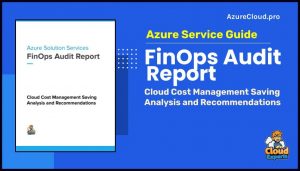How Microsoft Copilot Enhances FinOps for Azure Cloud Cost Management
By utilizing Copilot's capabilities, organizations can optimize their cloud spending while ensuring efficient resource allocation.
 Microsoft Copilot is a powerful tool that can be leveraged to implement FinOps best practices for managing and reducing Microsoft Azure cloud costs effectively.
Microsoft Copilot is a powerful tool that can be leveraged to implement FinOps best practices for managing and reducing Microsoft Azure cloud costs effectively.
By utilizing Copilot’s capabilities, organizations can optimize their cloud spending while ensuring efficient resource allocation.
Reduce unpredictability of operational costs with visibility into workload-related spend using AI chat in Microsoft Cost Management. See spending patterns and anomalies that drive up costs, set budgets, share workload costs across teams and business units, and identify opportunities for optimization.
Whether running individual workloads in Azure or managing overall cloud spend for your organization, get insight fast without being an expert navigating Cost Management UI. Microsoft Cost Management is available with your subscription from the Azure Portal.
- Automated Cost Monitoring: Microsoft Copilot provides automated cost monitoring features that allow users to track their Azure spending in real-time. By analyzing cost trends and patterns, organizations can identify areas of overspending and take proactive measures to optimize their cloud expenses.
- Budget Management: With Microsoft Copilot, users can set budget thresholds and receive alerts when approaching or exceeding the defined limits. This proactive approach enables organizations to stay within their financial targets and avoid unexpected cost overruns.
- Resource Optimization: By utilizing Copilot’s resource optimization capabilities, organizations can identify underutilized resources and make informed decisions to right-size or decommission them. This helps in eliminating unnecessary costs and improving overall cost efficiency.
- Cost Allocation and Reporting: Microsoft Copilot offers robust cost allocation and reporting features that enable organizations to allocate cloud costs accurately across departments or projects. This transparency in cost distribution helps in optimizing resource usage and promoting accountability.
- Recommendations and Best Practices: Copilot provides recommendations and best practices based on industry standards and cost optimization techniques. By following these suggestions, organizations can implement efficient cost-saving strategies and enhance their overall cloud cost management practices.
- Collaboration and Governance: Microsoft Copilot facilitates collaboration among teams by providing a centralized platform for managing cloud costs. It also enforces governance policies to ensure compliance with cost management guidelines and regulatory requirements.
- Continuous Improvement: Through continuous monitoring and analysis, Copilot helps organizations in identifying opportunities for further cost optimization and improvement. By iterating on cost management strategies, organizations can achieve long-term cost savings and operational efficiency.
By leveraging Microsoft Copilot for implementing FinOps best practices, organizations can streamline their Azure cloud cost management processes and achieve significant cost savings. With its advanced features and capabilities, Copilot empowers businesses to optimize their cloud spending while ensuring optimal resource utilization.



